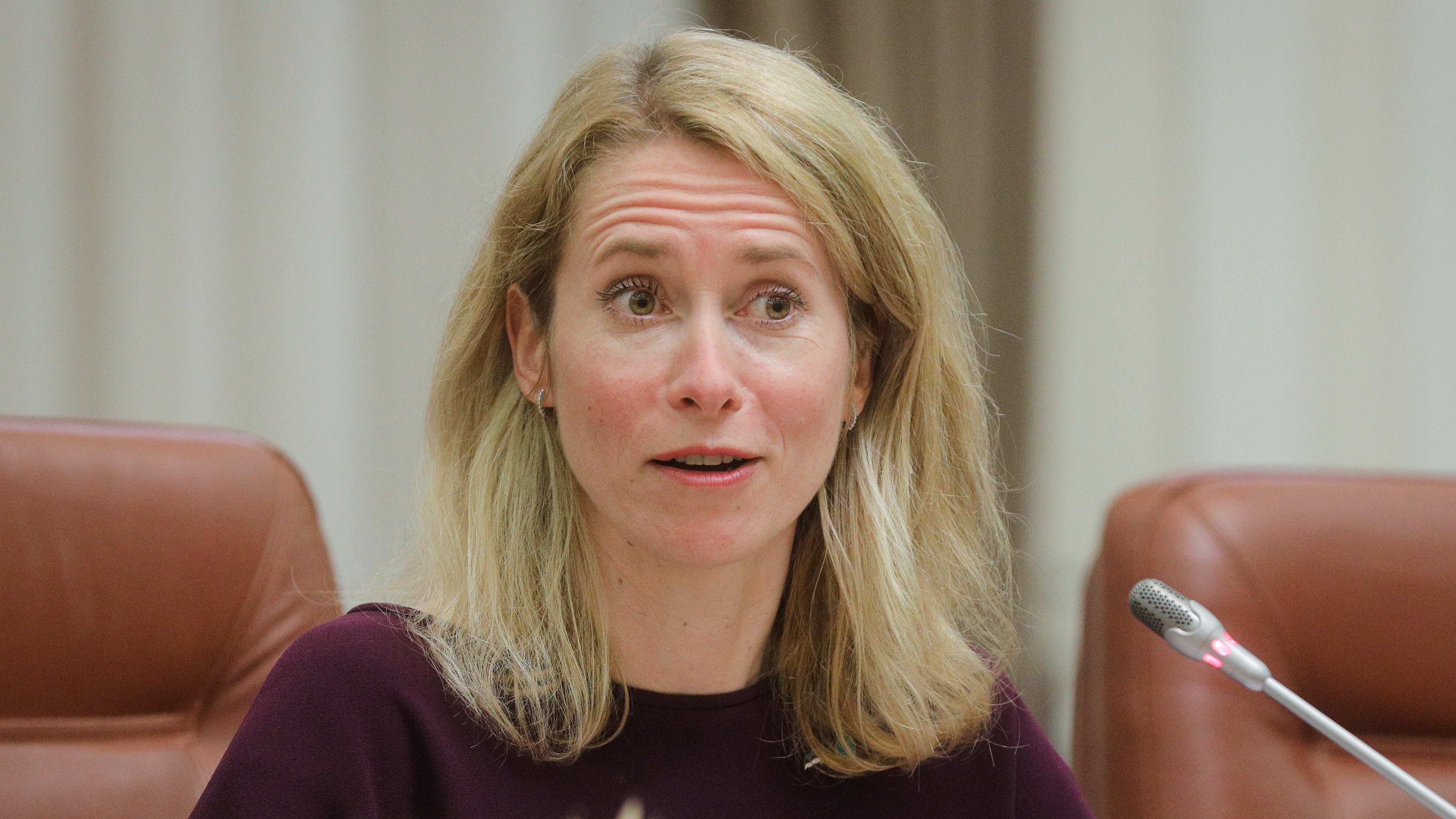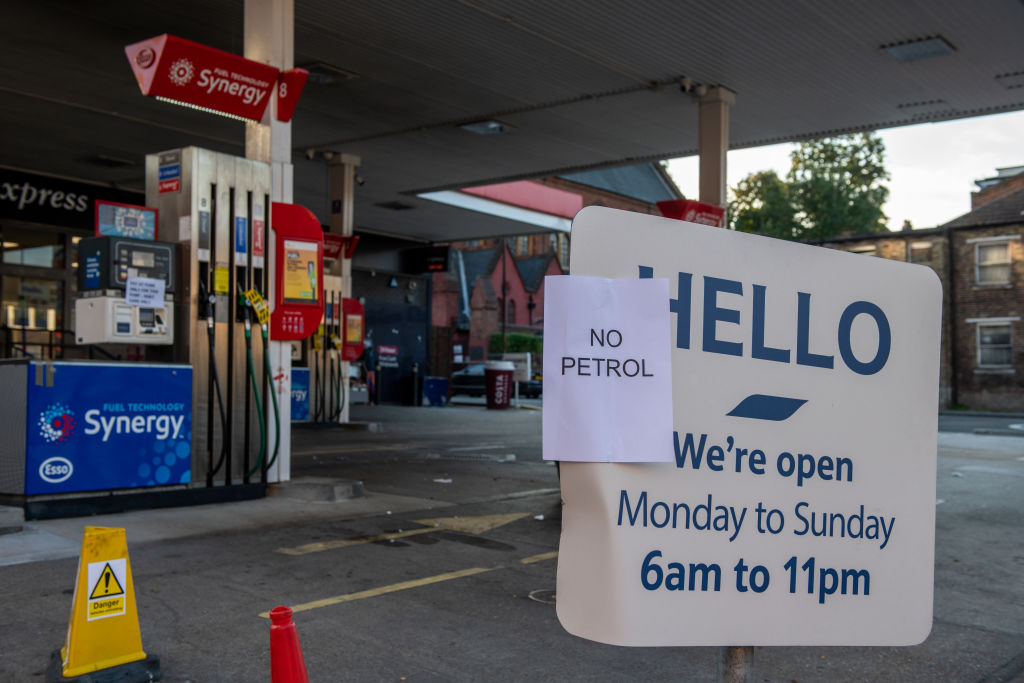How Brexit handed a ‘financial boon’ to former Soviet state Estonia
Around 4,000 companies have set up shop in member state since UK left EU, prime minister says

A free daily email with the biggest news stories of the day – and the best features from TheWeek.com
You are now subscribed
Your newsletter sign-up was successful
Estonia has welcomed thousands of British businesses since Brexit in a huge boost to the technology hub’s rapidly expanding economy.
One of “a number of countries” that offer “digital nomad” visas, the country has seen its tax revenues “swell” as entrepreneurs look to “escape the tangle of regulations and financial obstacles of doing business in Europe”, The New York Times (NYT) said.
Through upping sticks and moving businesses to Estonia, companies “can take advantage of the country’s membership in the European Union and therefore gain something Britain has lost”, the paper added. Namely, “free access to the bloc’s giant single market of more than 400 million people”.
The Week
Escape your echo chamber. Get the facts behind the news, plus analysis from multiple perspectives.

Sign up for The Week's Free Newsletters
From our morning news briefing to a weekly Good News Newsletter, get the best of The Week delivered directly to your inbox.
From our morning news briefing to a weekly Good News Newsletter, get the best of The Week delivered directly to your inbox.
Virtual gains
Telling City A.M. that the country is “benefiting hugely” from Brexit, Prime Minister Kaja Kallas said in September that Estonia’s “e-residency services” served as a major draw, attracting “more than 4,000 British companies” since the UK formally left the EU.
Pointing out that the country now plays host to seven so-called “unicorn” companies – technology firms with a market value of more than $1bn – she continued that for a nation of “only 1.3m people, this is a lot”.
Kallas explained that Estonia prepared for Brexit by making the business environment as welcoming as possible for “our British friends”.
A free daily email with the biggest news stories of the day – and the best features from TheWeek.com
“When the United Kingdom decided to leave the European Union, many British friends took up our e-residency services,” she said. “It clearly increased after Brexit, even before actually, even when the vote happened, we saw a spike.”
Estonia “was the first country in the world to offer e-residency to people living abroad”, according to The Baltic Times. The service allows business owners to “create and manage” a company registered in the country “entirely virtually”.
Explaining that the country’s tax system, as well as its technology scene and digital infrastructure make Estonia attractive, Kallas added: “99% of companies were established online, it takes under 20 minutes to set up a company in Estonia, and to start operating”.
Companies registered in Estonia “pay 0% corporate income tax if they reinvest in their company”, City A.M. said. Kallas added the government is in a “fight” with the Organisation for Economic Co-operation and Development and G7 over the tax system.
“What I don’t understand is that not all countries take up our system; it’s the most competitive system out there”, she said, explaining that the additional business has raised “an additional €51m (£43.5m) in tax”.
For Estonia, the movement of UK companies has “reinforced the country’s reputation as a hub of innovation”, the NYT said, as well as redressing the balance after “an exodus of some of its brightest young workers after 2004, when joining the EU gave its citizens the right to live and work in Britain, then a member country”.
“Now the brain drain is in the other direction,” the paper added.
‘Shopping for countries’
Vicky Brock, a tech entrepreneur who leads a Scotland-based start-up, told the NYT that moving her operation to Estonia allowed her to become a “Brexit refugee”.
Explaining that she began “shopping for countries” that would make trading with the EU easier following the referendum, she added that she “didn’t really know where Estonia was but it shone out on all of those lists”. She plans to hire 30 staff in Tallinn, the Estonian capital, over the coming nine months.
David Fortune, whose company works with European police departments and border guards, told the paper that having served in the Yorkshire police force for 30 years, “I don’t think I’ve ever thought of myself as a digital nomad”.
He moved his business “not because we had a downer on the UK”, but because “it’s just about survival and was necessary to grow our business brand as we wanted it to grow”. Using the e-residency visa, he told the paper he had no plans to move out of the UK.
Amid staff shortages and an exodus of financial jobs from London, the UK “brain drain” is handing a “financial boon” to countries like Estonia, the paper said.
In other words, the “Brexit boost” may have so far landed on foreign shores, City A.M. added.
-
 The EU’s war on fast fashion
The EU’s war on fast fashionIn the Spotlight Bloc launches investigation into Shein over sale of weapons and ‘childlike’ sex dolls, alongside efforts to tax e-commerce giants and combat textile waste
-
 How to Get to Heaven from Belfast: a ‘highly entertaining ride’
How to Get to Heaven from Belfast: a ‘highly entertaining ride’The Week Recommends Mystery-comedy from the creator of Derry Girls should be ‘your new binge-watch’
-
 The 8 best TV shows of the 1960s
The 8 best TV shows of the 1960sThe standout shows of this decade take viewers from outer space to the Wild West
-
 Can the UK avoid the Trump tariff bombshell?
Can the UK avoid the Trump tariff bombshell?Today's Big Question President says UK is 'way out of line' but it may still escape worst of US trade levies
-
 Five years on, can Labour's reset fix Brexit?
Five years on, can Labour's reset fix Brexit?Today's Big Question Keir Starmer's revised deal could end up a 'messy' compromise that 'fails to satisfy anyone'
-
 Why au pairs might become a thing of the past
Why au pairs might become a thing of the pastUnder The Radar Brexit and wage ruling are threatening the 'mutually beneficial arrangement'
-
 Brexit: where we are four years on
Brexit: where we are four years onThe Explainer Questions around immigration, trade and Northern Ireland remain as 'divisive as ever'
-
 Is it time for Britons to accept they are poorer?
Is it time for Britons to accept they are poorer?Today's Big Question Remark from Bank of England’s Huw Pill condemned as ‘tin-eared’
-
 Is Brexit to blame for the current financial crisis?
Is Brexit to blame for the current financial crisis?Talking Point Some economists say leaving the EU is behind Britain’s worsening finances but others question the data
-
 Why the UK is suffering a Walkers crisps shortage
Why the UK is suffering a Walkers crisps shortagefeature Production issues have forced snack giant to prioritise most popular varieties
-
 U.K. is experiencing panic-driven gas shortages tied to Brexit
U.K. is experiencing panic-driven gas shortages tied to BrexitSpeed Read